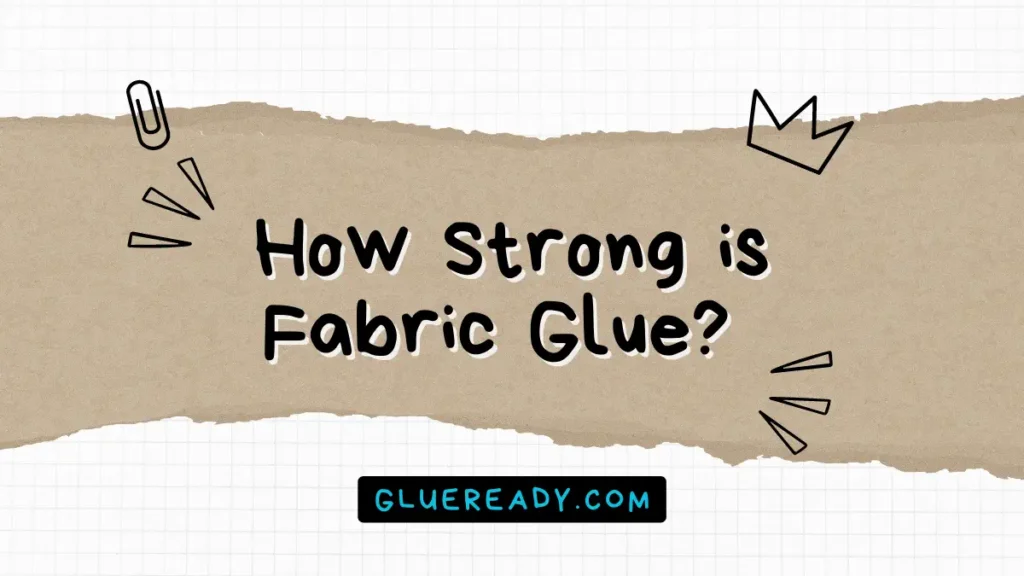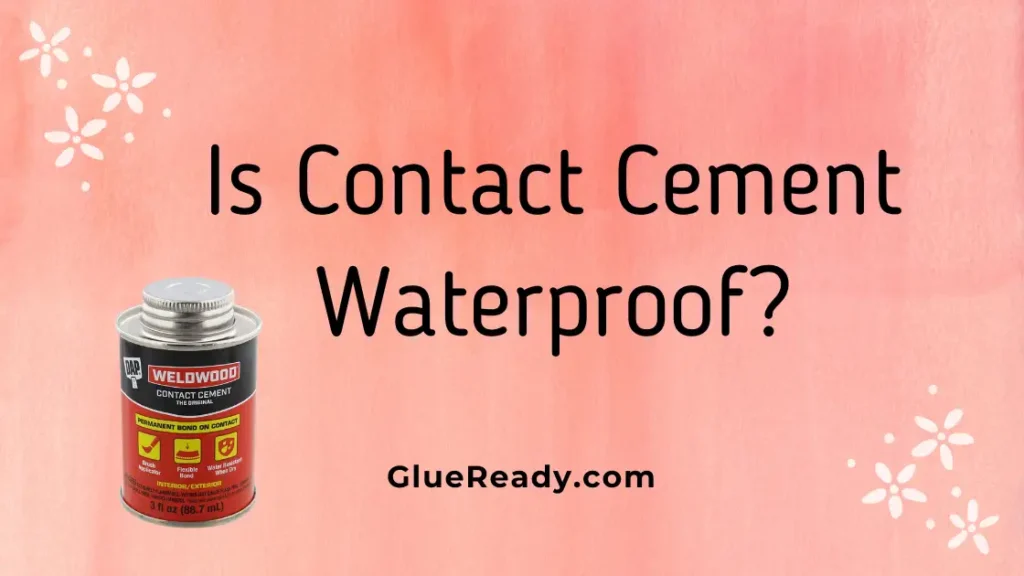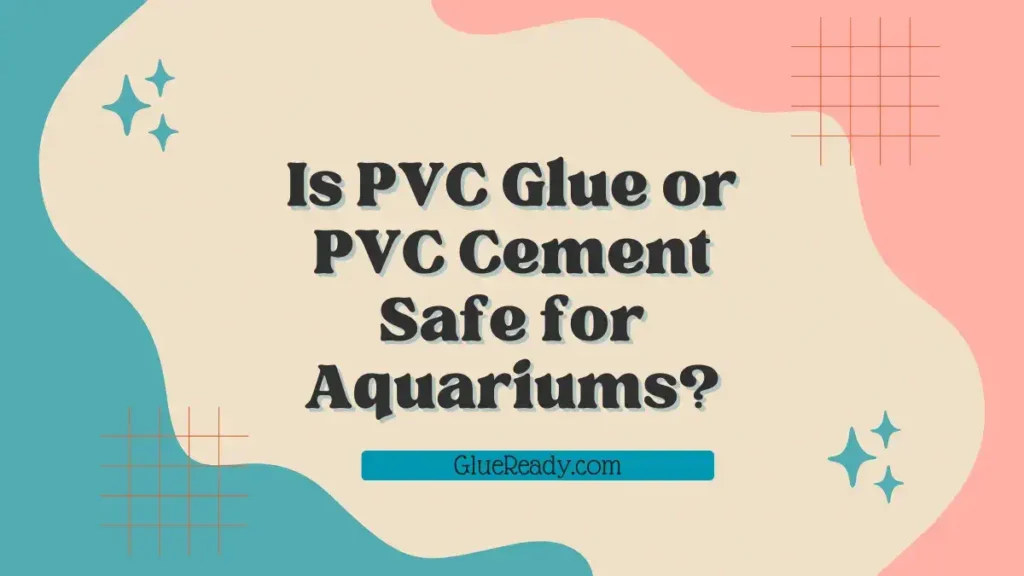How Long Does PVC Glue Take to Dry?
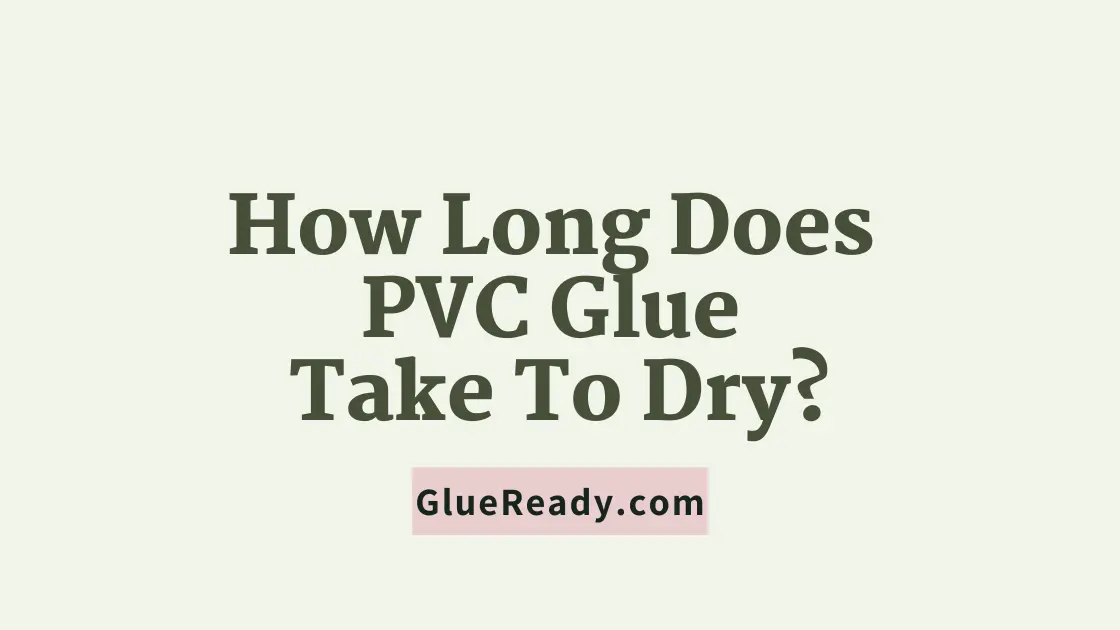
PVC (polyvinyl chloride) is a versatile material commonly used in plumbing, construction, and various DIY projects.
One of the crucial elements in working with PVC is the use of PVC glue, also known as PVC cement or solvent cement. PVC glue is essential for creating strong, leak-free joints between PVC pipes and fittings.
If you’re wondering how long PVC glue takes to dry, it’s a crucial question to answer to ensure the success of your project.
Read More: PVC Glue vs Cement
Understanding PVC Glue
PVC glue is not your typical adhesive; it is a solvent-based cement specially formulated for joining PVC pipes and fittings.
Unlike traditional adhesives, which rely on drying through evaporation, PVC glue chemically fuses the PVC surfaces together.
This chemical process results in a robust and watertight bond, making it ideal for use in plumbing and other applications where leaks could cause significant problems.
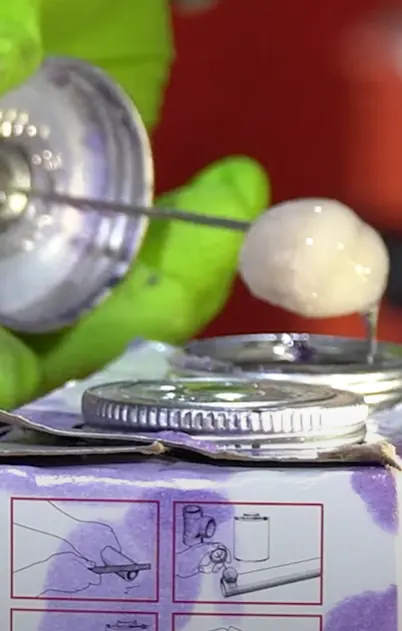
Factors Affecting Drying Time of PVC Glue
PVC glue can dry at different rates depending on several factors. These factors include:
- Type of PVC Glue: There are different types of PVC glue, including regular, medium-bodied, and heavy-duty. The type you use will affect the drying time. Generally, regular PVC glue dries faster than heavier formulations.
- Temperature: Temperature plays a significant role in how long it takes for PVC glue to dry. Warmer temperatures accelerate the curing process, while colder temperatures slow it down. It’s important to check the manufacturer’s recommendations for the specific product you’re using, as they often provide guidance on suitable temperature ranges for application.
- Humidity: When the humidity level is high, the solvent in the cement does not evaporate as quickly, resulting in a slow drying process. In extremely humid conditions, it may take longer for the cement to cure fully.
- Pipe Size and Thickness: The size and thickness of the PVC pipes being joined can impact drying time. Thicker pipes may require more time for the solvent to fully penetrate and create a strong bond.
Read More: Types of PVC Glue
How Long Does PVC Glue Take to Dry?
Typically, the drying time of PVC glue is between 15 minutes to 120 minutes.
While drying times can vary, here are some general guidelines for typical drying times for PVC glue:
- Fast-Setting PVC Glue: This type of glue is designed for quick bonds and can set in as little as 15 minutes. However, it’s essential to allow at least two hours before pressurizing the pipe or handling it.
- Regular PVC Glue: In moderate temperatures and humidity levels, regular PVC glue usually takes around 2-3 hours to set. However, if you plan to apply pressure to the joint, wait at least 24 hours before doing so.
- Heavy-Duty PVC Glue: Heavy-duty PVC glue is formulated for large-diameter pipes and challenging conditions. It typically requires a longer drying time, often around 4-6 hours or more.
- Low-Temperature Conditions: In colder temperatures, drying times can be significantly extended. It’s crucial to follow the manufacturer’s recommendations for temperature ranges and consider using a primer to speed up the curing process in cold conditions.
How to Make PVC Glue Dry Faster?
While it’s important to follow the manufacturer’s instructions and allow sufficient drying time for a secure and leak-free connection, there are some ways to help PVC glue dry faster:
- Use a Primer: Before applying PVC glue, use a PVC primer specifically designed for PVC pipe and fittings. The primer helps clean and soften the PVC surfaces, making it easier for the glue to bond quickly.
- Clean Surfaces Thoroughly: Ensure that the PVC surfaces to be bonded are clean and free of dirt, debris, and moisture. Wipe them down with a clean cloth or rag to remove any contaminants.
- Temperature and Humidity: The drying time for PVC glue is influenced by temperature and humidity. Warmer temperatures and lower humidity levels generally promote faster drying. If possible, work in a dry, well-ventilated area at a moderate temperature.
- Apply Thin, Even Coats: Apply a thin, even layer of PVC glue to both the pipe and fitting surfaces. Excess glue can take longer to dry and may weaken the bond.
- Proper Fit: Ensure that the pipes and fittings are properly aligned and fitted together immediately after applying the glue. This minimizes the time the glue has to start drying before the components are joined.
- Press and Hold: After fitting the pieces together, press them firmly and hold them in place for a few moments to allow the glue to set. This can help the bond form faster.
- Accelerators: Some PVC glue manufacturers offer accelerators or quick-setting agents designed to speed up the drying process. Follow the manufacturer’s recommendations if using such products.
- Choose a Fast-Drying Formula: Some PVC glue products are designed to dry more quickly than others. Check the product label or inquire with the manufacturer to see if a faster-drying formula is available.
- Avoid Disturbance: Once the PVC components are bonded, avoid any movement or disturbance until the glue has fully cured. This can take anywhere from a few minutes to several hours, depending on the glue and environmental conditions.
- Check the Manufacturer’s Recommendations: Always follow the specific instructions provided by the manufacturer of the PVC glue you are using. They will provide the most accurate guidance for that particular product.
Read More: CPVC vs PVC Glue
Frequently Asked Questions (FAQs)
How Long Should PVC Glue Dry Before Turning on Water?
It takes about 30 seconds for PVC glue to dry and 15 minutes for it to harden enough to hold water pressure.
However, for long-term performance, it is recommended to wait at least 20 minutes before handling the pipe again and allow at least 24 hours for the cement to start setting.
How Strong Is PVC Glue?
Properly cemented PVC joints are incredibly strong and will stay watertight for years.
The glue itself is not very strong, but it chemically “melts” the plastic, and the plastic hardens back again, effectively welding the pipe together.
Will PVC Glue Dry Under Water?
The short answer is that some PVC glues can dry underwater, but it depends on the specific product and the conditions.
Generally, PVC glues that are fast-acting and advertised as all-weather can cure underwater, but it will take at least 24 hours.
Final Thoughts
PVC glue is a useful product that can help you complete various plumbing projects. However, you need to be aware of how long it takes to dry and what factors can affect it.
Many factors can affect the drying time of PVC glue, such as the type of cement, the temperature, and the humidity.
Make sure to follow the manufacturer’s instructions for the specific PVC glue you’re using for the strongest, most reliable joints.


